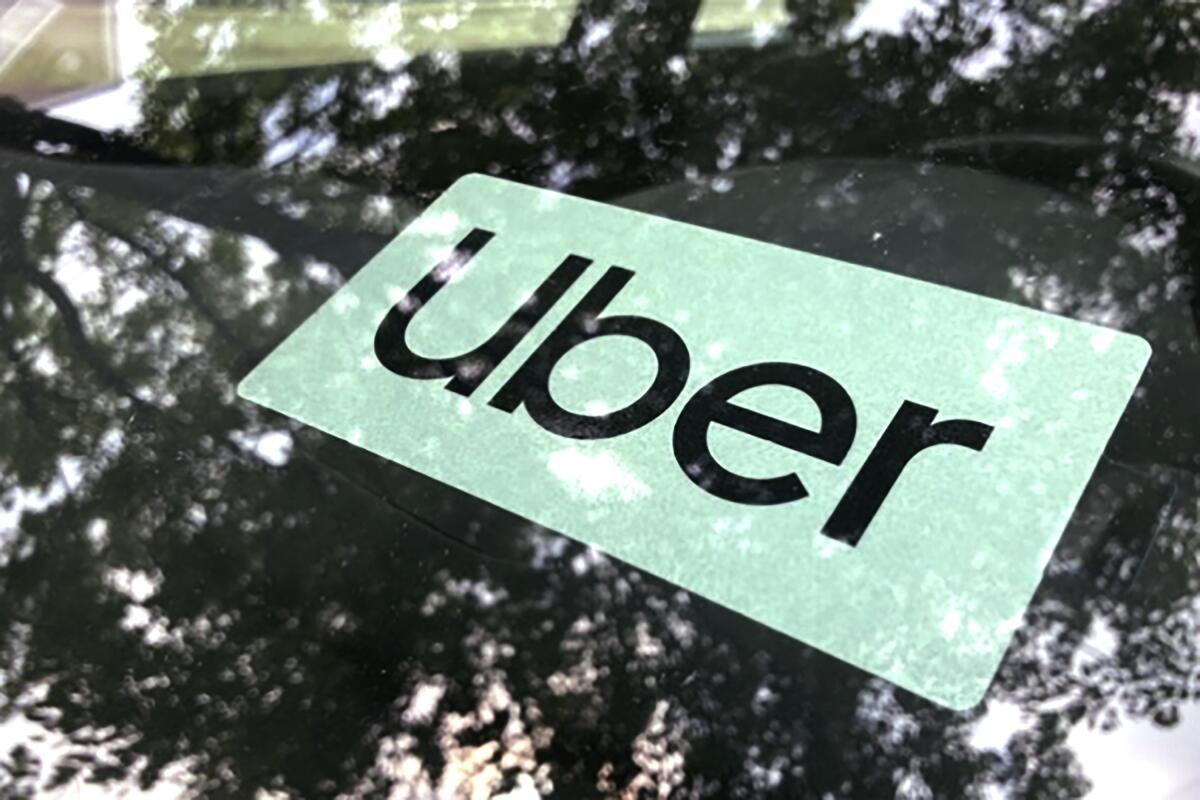Column: The worst tech of 2023 (an anti-gift guide)
It’s the holidays, and you know what that means: an endless stream of wishlists, gift guides, and splashy sales of products competing for our cash. Since this is the 21st century, so many of those are tech products — wearables, AI-infused gadgets, smart birdhouses, a firepit you control with an app, you name it.
It’s been a lot.
So I got to thinking: What if there was something closer to the opposite of a holiday wishlist for tech products? What if, given all the attention focused on the tech we’re being exhorted to buy, we took the occasion to ask whether we need a $150 digitized mug that keeps your coffee heated to a precise temperature? (Seriously, I am seeing this thing everywhere.)
What if we took the tech-saturated holidays as an opportunity to instead consider a list of all the tech we wished would go away? A sort of anti-tech gift guide? Maybe it’d help us confront the ways that consumerism has governed the ways tech has come to rule our lives a little.
I’d be lying if I said this line of thinking hasn’t been on my mind of late. As part of my recent book tour, I’ve been holding events called Luddite Tribunals. The Luddites, a movement of 19th-century textile workers who resisted the automation of their trade, didn’t hate all technology, or progress, as is commonly misunderstood — they opposed technology that was hurtful to society at large. So, first in New York, and then in the San Francisco Bay Area, I gathered a host of tech workers, scholars, journalists and artists to consider whether a series of technology products were a net benefit or net drain on society.
We considered AI-generated art, Amazon Ring doorbells, iPhones, HP printers, and so on. After a deliberation — did the technology hurt workers, con consumers, or spread surveillance, more than they provided joy or utility to the user? — if the tribunal gave it the thumbs down, well, we smashed the offending technology with a sledgehammer. Just like the Luddites did to the power looms.
Look, I’m not going to say it was the most mature book event idea, but it made for lively, provocative discussion, and boy was it cathartic.
So! In that spirit, I went to some participants in those events, as well as to some of the sharpest thinkers and critics in tech, to ask them to help me fill out a list of tech products, services and concepts we absolutely are not wishing for this holiday season — and in fact, wish weren’t around altogether. In most of these cases, it’s not a question of the core technology, which is simple software or hardware, but the uses to which it is being put. (That is what the Luddites took issue with too!)
There’s nothing wrong with a printer as a piece of hardware, for instance. But there’s a reason that it’s proved the most popular piece of tech to smash, and would probably make the least popular Christmas gift you’ve ever given: For one thing, modern printers break down notoriously fast. They’re deeply consumer unfriendly, and worse, many now require the user to purchase a subscription to buy ink, and come loaded with software that can tell if you purchased a competitor’s ink, or failed to pay your monthly subscription — and can brick the printer, and keep it from working as a result. This is ridiculous, and is as good an example as tech we wish would disappear, in its current configuration.
So! Without further ado, our list of the worst tech of the year. First up, a product I’m seeing on lots and lots of actual year-end gift guide lists, but which has given me the creeps since it entered the market.
Amazon Ring doorbells
Edward Ongweso Jr., finance editor at Logic magazine and co-host of “This Machine Kills.”
A world where the Ring surveillance camera never existed bears a closer resemblance to the world the company claims to be working toward. Amazon (and the police departments to which it offers Ring surveillance cameras for free) have deputized denizens of America’s already paranoid cities and towns to discipline underpaid and overworked delivery workers, suspect every neighbor or pedestrian of the most heinous of crimes (beginning with package theft), and give the delivery empire greater insight into the rhythm of the lives of its customers and their neighborhoods.
Uber
Veena Dubal, professor of law at UC Irvine and expert in gig work law.
Not because of the technology, but the business model. Taxi workers were using the same technology prior to the advent of Uber and Lyft, so it’s not the tech I object to, but how the companies use the technology. It’s the addition of surveillance and algorithmic control to the system that makes Uber so much worse.

Maybe next year someone could give us a way to summon a car without the worker exploitation?
(Nam Y. Huh / Associated Press)
Generative AI
Paris Marx, author, journalist, and host of “Tech Won’t Save Us.”
I’ve been frustrated to see the impact of generative AI on creative professions (and heartened by the strong and rapid pushback), but it goes far beyond that. The hype around AI has justified a further rollout in other areas that will have serious repercussions for marginalized communities, such as the U.K. government’s plan for an AI “hit squad” to replace humans with machines in immigration and public services. But even worse is when it has mortal consequences, as recent reports have detailed Israel’s use of AI to vastly increase its targets in Gaza, leading to an enormous death toll.
Cory Doctorow, science fiction author, activist and journalist. His latest book is “The Lost Cause.”
These are cryptographic systems inside digital devices — everything from a phone to a car engine — that allow services to extract true information about your device from it, even when you’d prefer otherwise. Think of an inkjet printer verifying that you’re not using third-party ink, or an app verifying that you’re not using an ad-blocker. These have proliferated into every domain — there’s even locomotives that use versions of this to lock up entire trains if the manufacturer detects that you’ve had the engine serviced by independent technicians.
23andMe
Jason Koebler, investigative journalist and co-founder of 404 Media
Genome sequencing and personalized medicine have great promise, and genetic databases have also helped people find their [biological] parents. Still, there are incredible risks associated with giving your immutable genetic code (and, by association, the genetic code of your close relatives) to a for-profit database, which can begin looking like a gold mine to law enforcement, big pharma companies, and, as we’ve unfortunately learned this week, hackers.
The concentration of power in big tech
Meredith Whittaker, CEO of Signal.
Maybe instead of focusing on the tech, I’ll focus on the incentives that drive its production and deployment currently. These are too often efficiency at the expense of worker well-being, cost savings at the expense of safety and integrity, and the illusion of computational sophistication at the expense of meaningful accountability — or automation as a liability shield. This is compounded by the extraordinary concentration of power in the tech industry. By and large these imperatives are shaping what tech gets built, the stories told about it, and the growing chasm between those with the power to make and use it and those on whom it’s used, and who suffer the blunt force of its harms.
Now that’s my kind of gift guide.
So, how about you? What tech products would make your list? Shoot us a letter to the editor, drop a comment below, or email me at brian.merchant@latimes.com and explain your reasoning, and we’ll consider them for inclusion in the follow up — the worst tech of the year, readers’ choice edition. Until then, happy holidays, and keep that proverbial hammer hoisted high.







